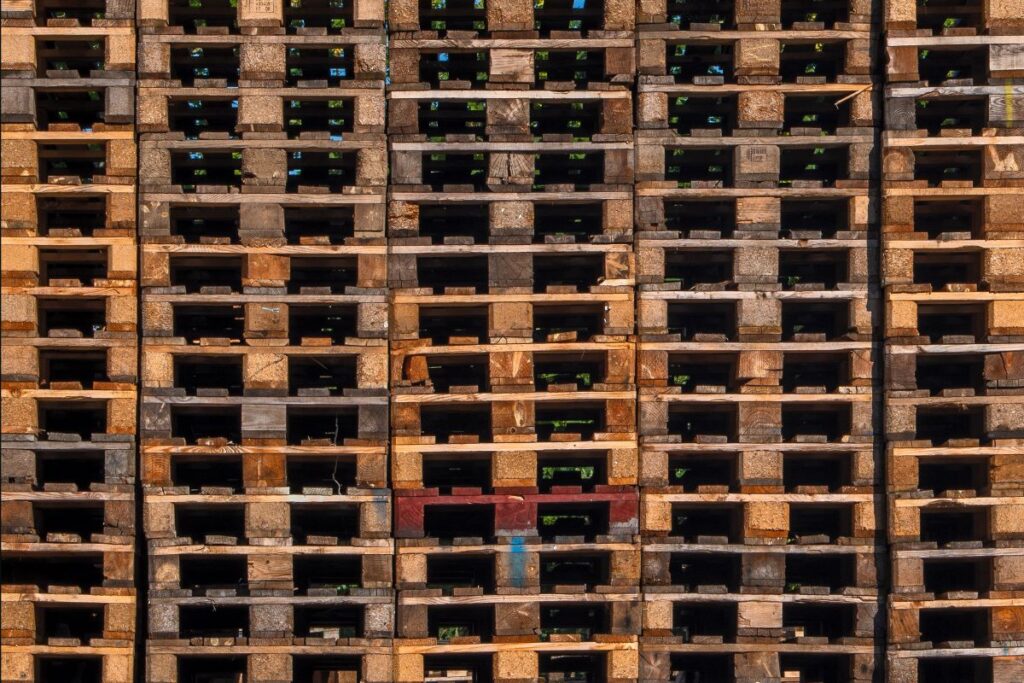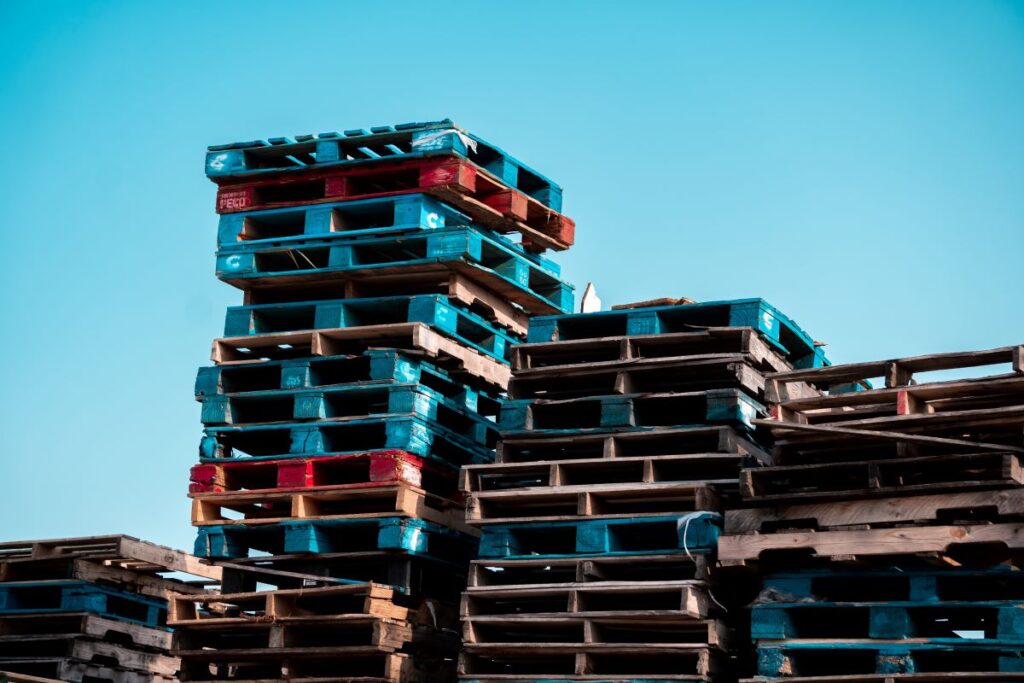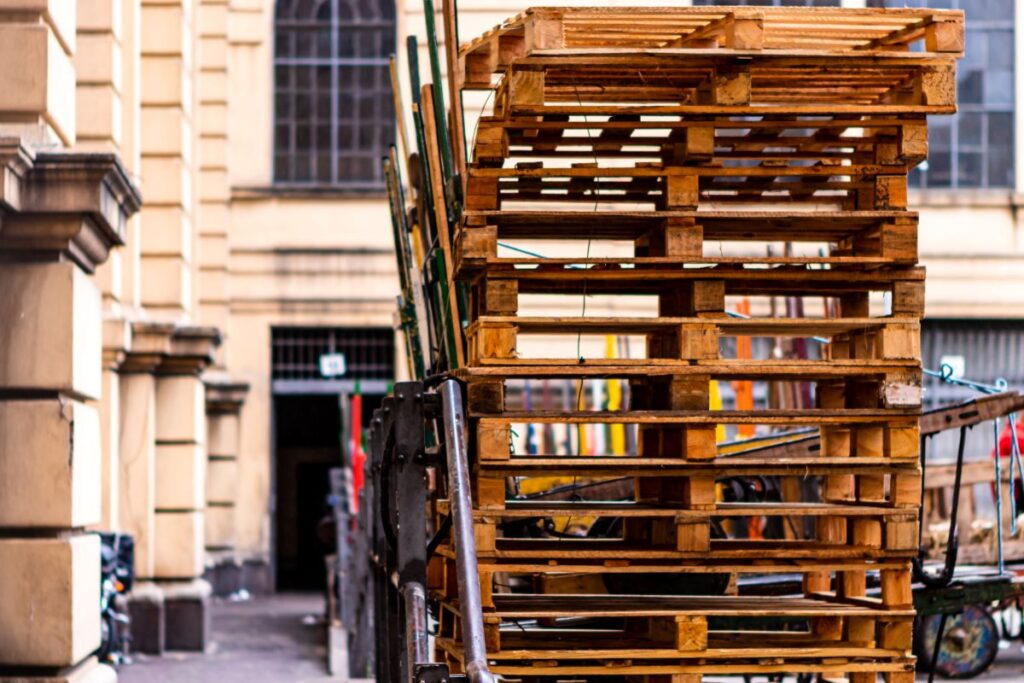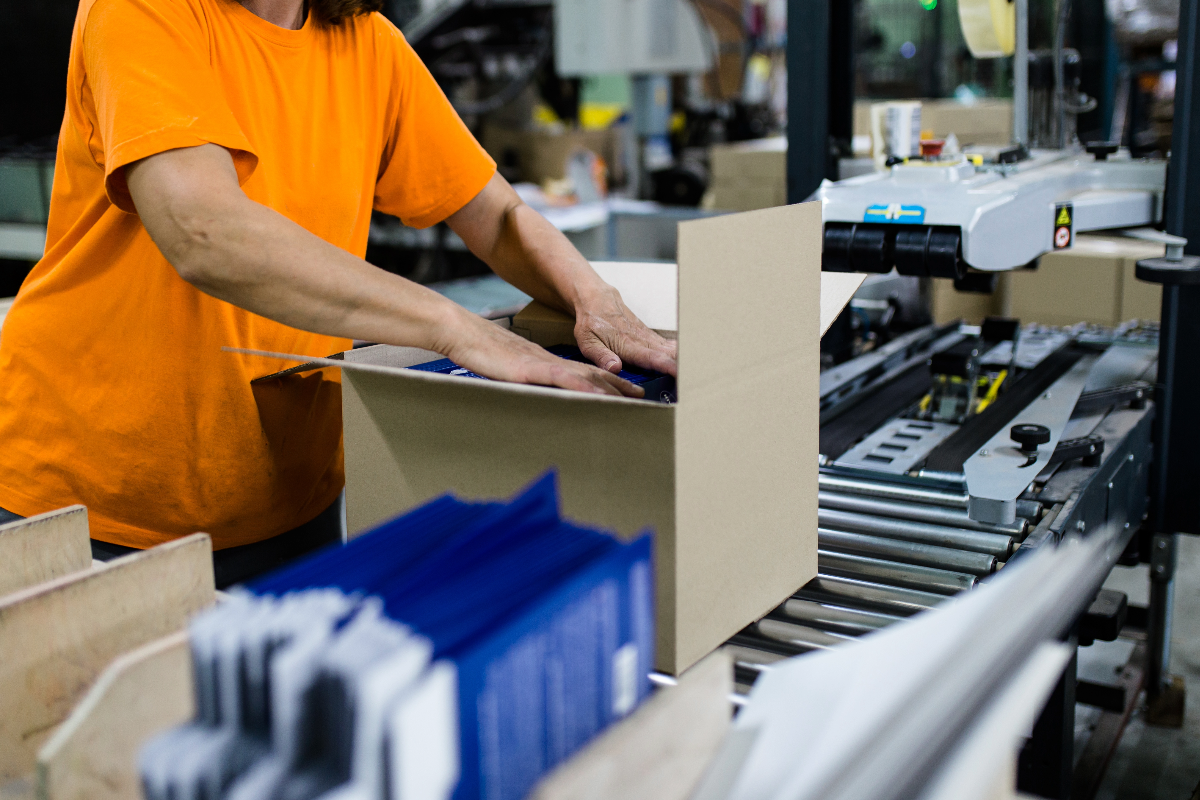BLOG
Lifecycle of a Pallet

Over 30 million pallets were in circulation in 2021 in the UK, with that number rising to four billion in Europe. While they’re great for delivering and storing materials, they can be tricky to manage due to their heavy and bulky nature. Therefore, our pallet collection and recycling service may be the best option for your business. Have you ever wondered what happens to your pallets once they’ve been collected by us?
What are pallets?
Wood pallets are commonly found in a variety of industries as they’re great for delivering and storing heavy loads. They are usually made from pine and oak wood and can carry up to around 2 tonnes. The weight of pallets can vary from 12kg to 25kg, and the average wood pallet usually has a lifespan of between three and seven years. The worth of a pallet can vary depending on the size, availability, and strength so our experts can work with you to figure this out. Pallets shouldn’t be put in any bins, but they are widely recyclable.
Lifecycle of a pallet
They’re a common sight in warehouses and are often used to store heavy goods. Pallets are also ideal for transporting these heavy goods as their shape helps machinery move them with ease. They’re also easy to stack so an ideal storage solution for businesses with limited space. Once they’ve been used as much as they can, we can take away pallets in any condition. They are then collected by our waste collection team. These pallets are sorted to decide the type and quality of the pallet. If the pallets are a good quality, they are offered up for immediate reuse and sent back out to be used again.
We understand that not every pallet we collect will be of pristine quality. Therefore, not every pallet can be offered up for immediate reuse. We aim to send as little waste to landfill as possible. Therefore, any broken or damaged pallets are sent to a facility where they are repaired to go back out into the market. We’re able to repair pallets with less than four broken components to send them back out into the market again. This is also the case for pallets that are a size we are unable to sell.
The pallets that can’t be immediately reused are broken into each individual component. These components are then hand sorted and assessed to see whether they can be used to make new pallets. Any broken parts are treated and repaired by trained operatives and made into new pallets that are delivered back out to customers. This is a better option for the environment as it minimises the number of trees cut down to make new pallets, helping to boost your business’s environmental credentials. On average, 44 million trees are saved by pallet recycling.


If any of the pallets we collect are beyond repair, they will be recycled as wood waste and be repurposed to ensure we’re getting the most out of our collections. For example, they could be made into new pieces of furniture or used as parts to fix other broken pallets we’ve collected. Any small cut offs that can’t be used are sent to a variety of biomass boilers so that nothing is wasted.
Unfortunately, we’re unable to collect blue pallets as they’re owned by the CHEP company. They need to be contacted directly to organise any collections. Red pallets are owned by IPP, so these must be returned to them. These pallets are rented rather than sold so cannot be traded and will be recycled by the company that owns them.
Contact us
Has your business got excess pallets you need collecting? We can collect 1-500 pallets so contact us today to arrange for a collection that works best for you.




